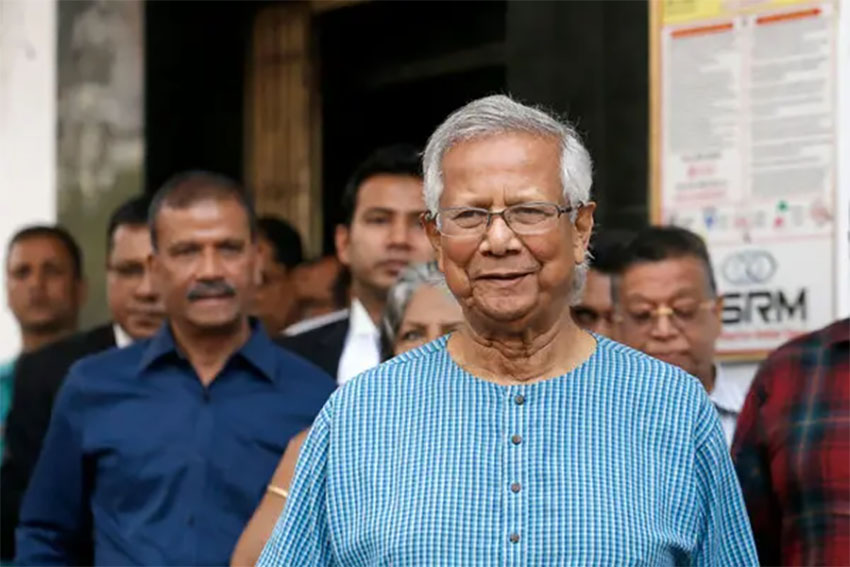Photo Credit: Getty Images
Bangladesh's interim Prime Minister Muhammad Yunus has firmly declined to meet Labour MP Tulip Siddiq during his London visit, amidst a growing swirl of corruption allegations and international political friction. The Nobel laureate and former economist, who assumed leadership after the dramatic ousting of Sheikh Hasina's government, told the BBC that any engagement with Siddiq would interfere with an ongoing legal process. His stance emphasized trust in Bangladesh's Anti-Corruption Commission (ACC), which is probing claims that Siddiq unlawfully acquired land through her familial connections.
Siddiq, a British MP and niece to the former prime minister, has vehemently denied the accusations. She characterizes them as a politically motivated smear campaign and expressed disappointment over Yunus' refusal to meet. In her view, dialogue could have dispelled what she described as baseless accusations. But Yunus, deflecting from political engagement, insisted that courts — not conversations — would resolve the matter.
The situation has sparked a complex diplomatic dilemma. Siddiq, a former Treasury minister, said Bangladeshi authorities have failed to share concrete evidence or respond to her legal team. She added that correspondence has been sent to an address in Dhaka where she has never lived, further muddying the waters of an already charged legal landscape. Nevertheless, Yunus maintained that the Anti-Corruption Commission's procedures are legitimate and transparent under his oversight.
The corruption scandal comes at a time when Bangladesh is attempting to recover an estimated $234 billion allegedly misappropriated during Hasina's administration. Much of this wealth is suspected to have ended up in the United Kingdom. Yunus stated that Bangladesh's interim government has engaged legal teams to trace and potentially reclaim these funds, noting the UK's cooperation and the involvement of the International Anti-Corruption Coordination Centre.
While Yunus's London itinerary included meetings with King Charles and Business Secretary Jonathan Reynolds, he did not secure a visit with Prime Minister Sir Keir Starmer, Siddiq's political ally and constituency neighbor. Yunus downplayed the snub, describing it as a missed opportunity rather than a deliberate rebuff. In contrast, Siddiq remains frustrated, insisting the allegations are fictional and designed to erode her credibility both in the UK and Bangladesh. With Yunus standing firm on the side of legal due process, the saga seems far from over, signaling a tense future for Bangladesh's political landscape and its international relations.


